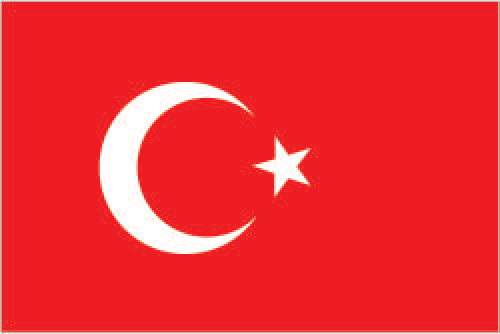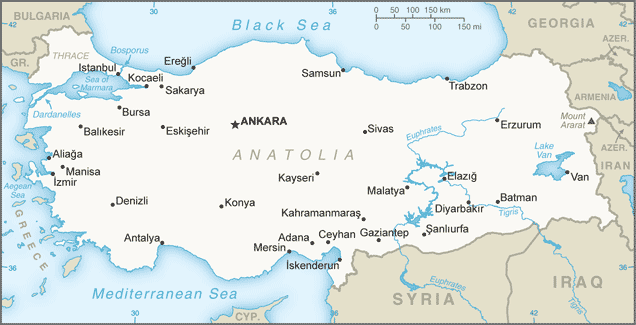Exporting to Turkey


Turkey Country Profile
Official Name (Local Language) Turkiye Cumhuriyeti
Capital Ankara
Population 80,274,604
Currency Turkish Lira
GDP $856.8 billion
Languages Turkish
Phone Dial In 90
Turkey Imports Profile
Imports ($m USD) 233,800
Number of Import Products 4,336
Number of Import Partners 218

Turkey Economic Statistics
Government Website | https://www.turkiye.gov .tr/non-citizens |
| Sovereign Ratings | https://countryeconomy. com/ratings/turkey |
| Central Bank | Türkiye Cumhuriyet Merkez Bankasi |
| Currency USD Exchange Rate | 3.5 |
| Unemployment Rate | 10.9% |
| Population below poverty line | 21.9% |
| Inflation Rate | 8.5% |
| Prime Lending Rate | 15.2% |
| GDP | $856.8 billion |
| GDP Pro Capita (PPP) | $21,100 |
| Currency Name | Turkish Lira |
| Currency Code | TRY |
| World Bank Classification | Upper Middle Income |
| Competitive Industrial Performance | 55/138 |
| Corruption Perceptions Index | 81/180 |
| Ease of Doing Business | 43/190 |
| Enabling Trade Index | 59/136 |
Access trade, receivables and supply chain finance
We assist companies to access trade and receivables finance through our relationships with 270+ banks, funds and alternative finance houses.
Get StartedExporting to Turkey
Turkey has a population of around 75 million and holds the seventh position in terms of size within the import list in the EU countries and fifth in terms of export. The EU is its top trade partner. The main export partners of Turkey are Iraq, the EU, Russia, the United Arab Emirates, USA, and Iran.
Exporting to Turkey: What is trade finance?
Trade finance is a revolving facility which some banks and specialist lenders offer – it enables firms to purchase stock and can help ease cash flow problems. Generally, an export finance bank will fund most of the cost of the products, including charges (e.g. bank charges). Trade finance offers benefits over more traditional bank funding such as asset finance or business loans. Trade finance provides up front funding without affecting existing relationships with banks.
How does it work?
If you’re an organisation importing or exporting stock supplies internationally, then a trade finance facility would help you to fund this through offering a LC (letter of credit) or some form of cash advance.
I’m looking to export to Turkey, how can Trade Finance Global help, and how does it work?
If you’re looking to export goods to other markets, you may require finance for exporting, which is a commercial agreement between you (the exporter), and the foreign importer. A non-bank lender will advance you the cost of producing the stock that you’re exporting (as a debt instrument), either once you have shipped the goods, or before you have produced them. Once the importer has received the products and pays you for the import, you will repay the advance from the export bank over an agreed period of time.
Chart Showing GDP Growth Compared to rest of world
GDP Composition for Turkey
Agriculture
6.1%
Tobacco, cotton, grain, olives, sugar beets, hazelnuts, pulses, citrus; livestock
Industry
28.5%
Textiles, food processing, automobiles, electronics, mining (coal, chromate, copper, boron), steel, petroleum, construction, lumber, paper
Services
65.5%
Map
Top 5 Import Partners
| Country | Trade | % Partner Share |
| China | 23,371 | 10.00 |
| Germany | 21,302 | 9.11 |
| Russian Federation | 19,514 | 8.35 |
| United States | 11,952 | 5.11 |
| Italy | 11,305 | 4.84 |
Top 5 Import Products
| Export Product | Number |
| Gold in unwrought forms non-monetary | 7.1% |
| Petroleum oils, etc, (excl. crude); preparation | 4.2% |
| Ferrous waste and scrap, iron or steel, nes | 3.7% |
| Transmission apparatus, for radioteleph incorpo | 2.6% |
| Automobiles with diesel engine displacing more | 2.6% |
Local Partners
- All Topics
- Turkey Trade Resources
- Export Finance and ECA Topics
- Local Conferences



















